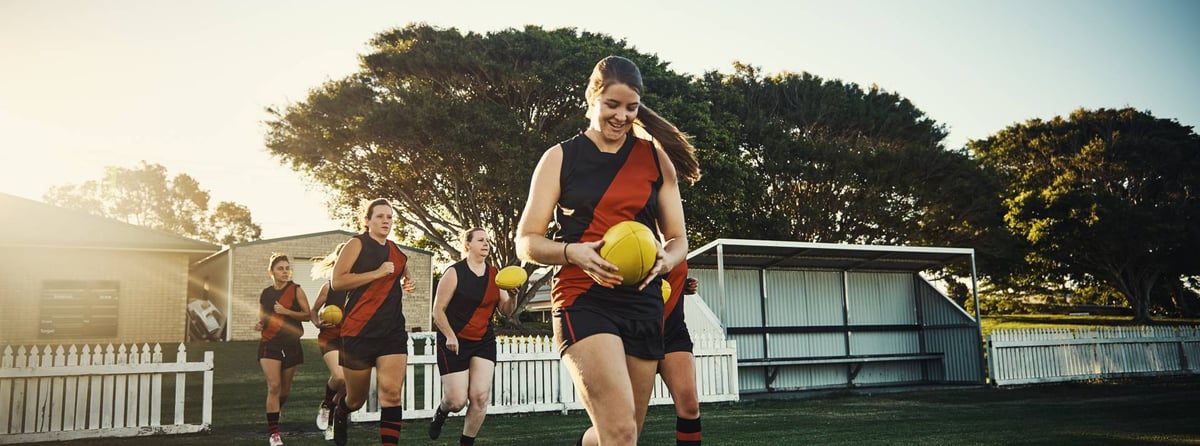Think about a time when you have returned to work after a long holiday or returned to sport to start a new season, you rarely return the same way as you left off. Likewise, when your employees are returning to work after time off, it’s important they consider how their body has changed during the time they’ve been away. Altius Group Exercise Physiologist, Josie Nancarrow explains how easily deconditioning can happen and provides her top 5 strategies to share amongst your team – to help them to return to work safely.
Whether you’ve experienced an injury, taken a lengthy holiday or worked from home due to social distancing restrictions, your fitness for work will have been altered. This will most certainly have led to some muscular deconditioning. Deconditioning is the normal muscular response to a decrease in physical activity.
No matter what the reason for ceasing work is, if you no longer get dressed and ready for work, or walk into your workplace and engage in your normal activities, your muscles will gradually lose the strength to perform those activities. Once we return we can gradually improve our conditioning and fitness to these activities. We can build up specific work fitness, however we can lose this work fitness just as quickly as we can gain it.
Research tells us that we can start losing strength and conditioning 24 hours after stopping our normal activities, and if this inactivity continues for 5-6 weeks, we can then lose up to 30-40% of our overall strength. Imagine losing 40% of your wealth in 6 weeks, it’s certainly significant. When returning to work after an extended time off, we recommend incorporating the following 5 easy to implement strategies, to help you not only return to work, but stay at work and stay healthy.
- Pace Yourself: Don’t go 1000 miles per hour. Take your time to do things. This might mean a few extra seconds between lifting crates or a few more minutes drafting emails. When you’ve had some time away, your body needs time to re-adjust to the demands work places on it.
- Keep an Eye on Your Manual Handling: Think about the way you do things. After time off, deconditioning takes hold and you may not have the strength or tolerance to do things the way you did previously. Manual handling ensures that you give your body the best chance of completing the task by placing you into the most biomechanically optimal position. Poor manual handling can lead to an increased risk of injury occurring. Correct and safe manual handling reduces the risk of joint decompression and strained muscles by getting your body to work safely and more efficiently.
- Take Regular Mini-Breaks: After some time off you might not be able to handle working for the duration of time that you had done before. Try utilising mini-breaks throughout your shifts by doing things such as taking an extra bathroom break, stretchin or getting an extra glass of water. This will reduce the fatigue and the load on your body and allow you to complete your work tasks for longer.
- Make Postural Changes: Your best posture is your next posture. Our bodies generally don’t like staying in the one position for too long, whether it be sitting or standing. Try to move as much as possible. This may mean shifting around in your seat or splitting your stance whilst standing. Doing this will reduce the muscular fatigue within your body as by changing postures, you will effectively use different muscles that will share the load.
- Add Workplace Stretches to Your Day: For desk workers or anyone spending a length of time at a computer, stretching is important to avoid prolonged postures and to increase the blood flow to combat the negative effects of sitting for long periods. In a more labour-intensive role stretching is beneficial also to relieve tension in the lower back and increase range of movement in hips and knees for tasks such as squatting and kneeling.
By implementing these strategies after an extended period off work, you will gradually build up your strength and fitness to manage your regular work duties and activities of daily life. It will allow you to safely return to the things you want to do and stay there on a durable basis. It’s important to note that all these strategies are not major alterations and that small changes can make big differences.
OccHealth by Altius has successfully supported employees and employers with return to work strategies for over 25 years. Our allied health professionals have provided support to thousands of people to return to work safely and durably, realising their health potential.
For a recent example of OccHealth’s workplace strategies in action, please follow the link to view a success story from our Recovery and Wellness Initiative (RAWI).
If we can help you with further information or support, please visit our website and contact one of our friendly Accredited Exercise Physiologists.






